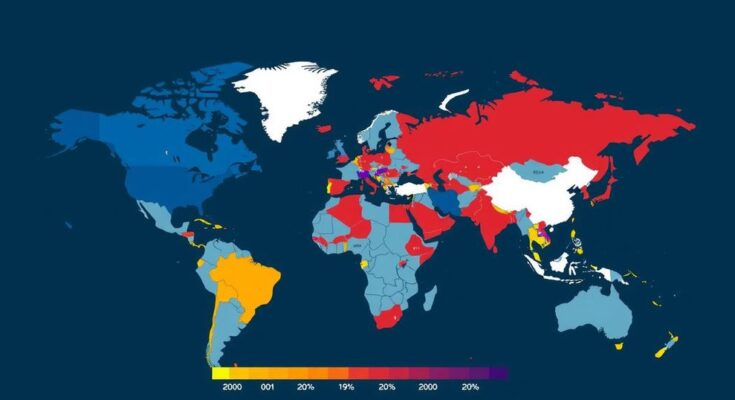Democrats faced losses in recent elections, in line with global trends where over 80% of incumbent parties lost ground. While the U.S. economy performed relatively well, voter dissatisfaction with issues like inflation dominated the discourse. The trend shows a significant electoral shift, with potential implications for future political strategies as Democrats approach the next elections as non-incumbents.
The disappointing performance of the Democrats in the recent elections reflects a broader global phenomenon where incumbent parties have faced significant losses in democracies worldwide. Vice President Kamala Harris’s campaign, while uniquely scrutinized, is situated within a reality where over 80 percent of democracies experienced declines in the incumbent party’s vote shares or parliamentary seats. Historical victories by opposition candidates in various countries underscore the prevailing dissatisfaction among voters towards their governments. Specific cases highlight this trend: Japan, Botswana, and South Africa witnessed longstanding ruling parties losing their majorities, while Senegal’s opposition secured a historic presidential win. Notably, Sri Lanka’s electorate swung decisively against the incumbent, contributing to a prevailing sentiment of voter discontent across multiple democratic nations. Despite this broader trend, the Democrats displayed relative resilience, experiencing one of the smallest losses among wealthy nations this election cycle. The relative strength of the U.S. economy, characterized by notable GDP growth and rising wages, partially explains this anomaly. However, economic discontent, particularly concerning inflation and housing costs, remained paramount in voters’ minds, overshadowing positive economic news that Democrats sought to promote. Furthermore, the success of certain incumbents in other nations can be attributed to a significant focus on security issues, a strategy that did not mirror the priorities of the American electorate during this campaign season. Instead, national security considerations, though present, did not dominate discussions in the same manner as they did abroad. Thus, while the Democrats grappled with voter dissatisfaction and economic anxiety, genuine opportunities may arise from this election cycle; with the Democrats not facing incumbency in future contests, they could leverage current tensions to their advantage.
In the wake of recent elections, a global analysis reveals a striking pattern: incumbent parties are facing unprecedented challenges, signaling a potential shift in political landscapes. The phenomenon is underscored by exceptional voter turnout and an overwhelming sense of dissatisfaction among populations across democracies. This analysis investigates how these global trends impact the Democratic Party in the United States and situates their performance within a historical context of electoral struggles faced by ruling parties.
This examination of the electoral landscape indicates that the Democratic Party’s recent performance, while relatively stable compared to global counterparts, was significantly influenced by widespread voter dissatisfaction and economic challenges. The trends observed suggest an increased potential for opposition victories in upcoming elections, particularly as Democrats navigate the complexities of incumbency. Ultimately, these patterns raise important considerations for future electoral strategies and voter engagement, highlighting the necessity for adaptation in changing political environments.
Original Source: abcnews.go.com




